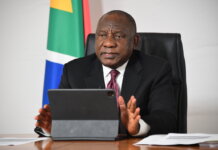The Money Bills Amendment Procedure and Related Matters Act, No 9 of 2009, is a cornerstone of South Africa’s fiscal governance, giving Parliament the authority to amend money bills, including national budget proposals, revenue bills, and appropriation acts. Enacted to enhance legislative oversight and democratic participation, the Act ensures that the national budget reflects not only executive priorities but also the public interest.
At its core, the Act mandates that the National Assembly and National Council of Provinces exercise legislative power responsibly—within a framework that includes balanced revenue and expenditure, prudent debt management, and accountability to citizens.
[irp]
Key Provisions of the Act
The Act requires the establishment of committees on finance and appropriations in both Houses of Parliament. These committees are tasked with assessing macroeconomic policies, scrutinizing revenue proposals, and monitoring spending patterns. Importantly, public hearings are mandated as part of the process, reinforcing participatory democracy.
Prior to each budget cycle, the Minister of Finance must submit a Medium Term Budget Policy Statement at least three months in advance. This statement outlines spending priorities and forecasts for the coming three years. Parliament is required to review and, if necessary, amend this framework through reports and recommendations.
Once the national budget is tabled, Parliament has 16 days to accept or propose amendments to the fiscal framework and revenue proposals. Any changes must be fiscally sound, considering long-term economic impact, service delivery outcomes, and public debt implications.
The Division of Revenue Bill, Appropriation Bill, and any adjustments or amendments must adhere strictly to the approved fiscal framework. The Act also empowers provincial legislatures to amend provincial budgets, guided by similar principles.
[irp]
Role of the Parliamentary Budget Office
To support evidence-based decision-making, the Act establishes the Parliamentary Budget Office (PBO). This independent entity provides expert analysis, monitors spending, and advises committees on policy proposals with budgetary implications. Its role is crucial for maintaining transparency and avoiding unfunded mandates.
Ensuring Government Accountability
Through structured timelines, inter-committee consultations, and mandatory Ministerial responses to proposed amendments, the Act fosters a rigorous, accountable process. Amendments must be justified with reference to departmental performance, strategic priorities, and measurable outcomes.
In a political climate where public trust in fiscal management is paramount, the Money Bills Amendment Procedure Act empowers Parliament to act as a true steward of the public purse—grounded in transparency, legality, and inclusive governance.












